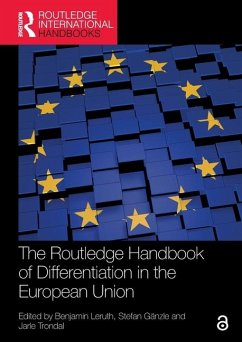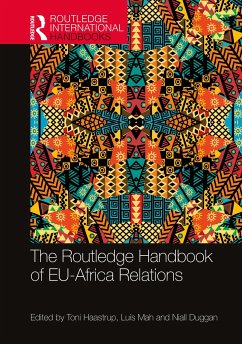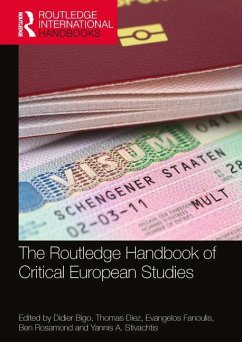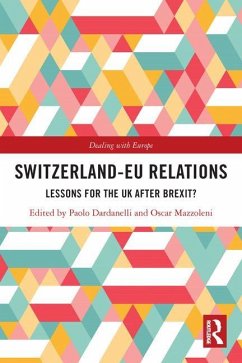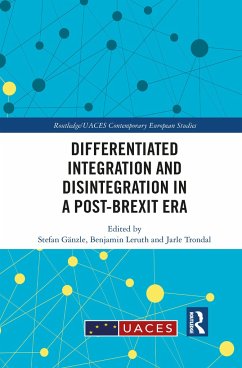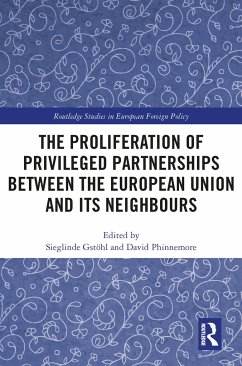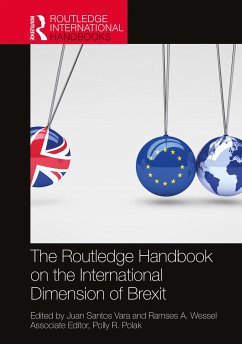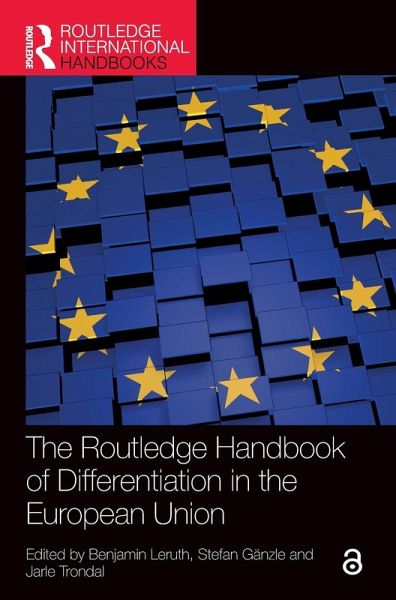
The Routledge Handbook of Differentiation in the European Union

PAYBACK Punkte
115 °P sammeln!
The Routledge Handbook of Differentiation in the European Union offers an essential collection of groundbreaking chapters reflecting on the causes and consequences of this complex phenomenon.With contributions from key experts in this subfield of European Studies, it will become a key volume used for those interested in learning the nuts and bolts of differentiation as a mechanism of (dis)integration in the European Union, especially in the light of Brexit. Organised around five key themes, it offers an authoritative "encyclopaedia" of differentiation and addresses questions such as:How can on...
The Routledge Handbook of Differentiation in the European Union offers an essential collection of groundbreaking chapters reflecting on the causes and consequences of this complex phenomenon.
With contributions from key experts in this subfield of European Studies, it will become a key volume used for those interested in learning the nuts and bolts of differentiation as a mechanism of (dis)integration in the European Union, especially in the light of Brexit. Organised around five key themes, it offers an authoritative "encyclopaedia" of differentiation and addresses questions such as:
How can one define differentiation in the European Union in the light of the most recent events?
Does differentiation create more challenges or opportunities for the European Union?
Is Europe moving away from an "ever closer Union" and heading towards an "ever more differentiated Union", especially as leading political figures across Europe favour the use of differentiation to reconcile divergences between member states?
This handbook is essential reading and an authoritative reference for scholars, students, researchers and practitioners involved in, and actively concerned about, research in the study of European integration. As European differentiation is multifaceted and involves a wide range of actors and policies, it will be of further interest to those working on countries and/or in policy areas where differentiation is an increasingly relevant feature.
The Introduction and chapters 13, 21, 30, and 35 of this book is available for free in PDF format as Open Access from the individual product page at www.routledge.com. It has been made available under a Creative Commons Attribution-Non Commercial-No Derivatives 4.0 license.
With contributions from key experts in this subfield of European Studies, it will become a key volume used for those interested in learning the nuts and bolts of differentiation as a mechanism of (dis)integration in the European Union, especially in the light of Brexit. Organised around five key themes, it offers an authoritative "encyclopaedia" of differentiation and addresses questions such as:
How can one define differentiation in the European Union in the light of the most recent events?
Does differentiation create more challenges or opportunities for the European Union?
Is Europe moving away from an "ever closer Union" and heading towards an "ever more differentiated Union", especially as leading political figures across Europe favour the use of differentiation to reconcile divergences between member states?
This handbook is essential reading and an authoritative reference for scholars, students, researchers and practitioners involved in, and actively concerned about, research in the study of European integration. As European differentiation is multifaceted and involves a wide range of actors and policies, it will be of further interest to those working on countries and/or in policy areas where differentiation is an increasingly relevant feature.
The Introduction and chapters 13, 21, 30, and 35 of this book is available for free in PDF format as Open Access from the individual product page at www.routledge.com. It has been made available under a Creative Commons Attribution-Non Commercial-No Derivatives 4.0 license.




